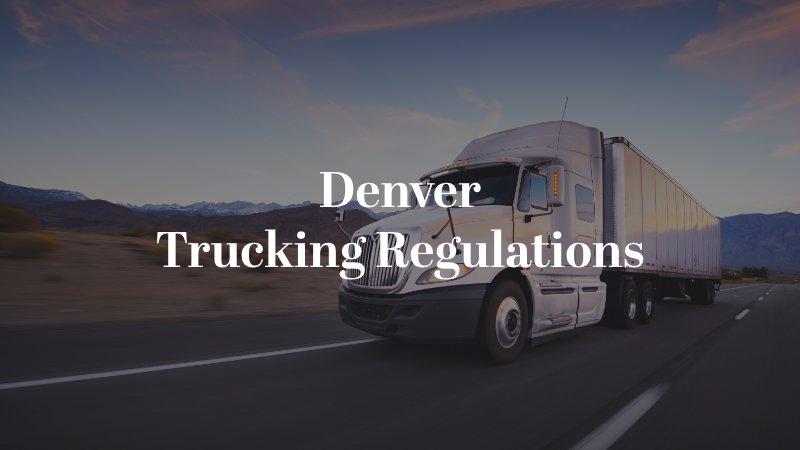Both the federal government and the state of Colorado have laws and regulations designed to prevent negligence by trucking companies and drivers. These laws are meant to protect the public and improve trucking industry safety for all.
If you have been injured in an accident with a truck, contact a Denver truck accident attorney today.
The FMCSA
The Federal Motor Carrier Safety Administration, or FMCSA, is the lead federal government agency responsible for regulating and providing safety oversight of commercial motor vehicles. Its mission is to reduce crashes, injuries, and fatalities involving large trucks and buses.
The FMCSA partners with local agencies like the Colorado Department of Transportation, or CDOT, to improve CMV safety through regulation, education, enforcement, research, and technology.

The CDOT
Colorado has its own set of trucking laws in addition to those set forth by the FMCSA. The Colorado Department of Transportation (CDOT) enforces these state-specific laws.
Colorado Trucking Regulations
Colorado’s state-specific trucking regulations must be complied with along with any FMCSA laws.
Colorado’s laws include but are not limited to:
- Chain laws. Colorado’s chain laws require all commercial vehicles operating on Interstate 70 between milepost 133 and milepost 259 to carry a sufficient number of chains or other traction devices between September 1 and May 31;
- Size and weight limits. Commercial vehicles must fall within certain size and weight limits.
- 36,000 pounds for a single vehicle with two axles;
- 54,000 pounds for a single vehicle with three or more axles; and
- 85,000 pounds for a truck/trailer combination.
- Drivers must obtain permits from the CDOT for trucks that exceed size and weight limits;
- Hours of service. Drivers may only drive up to 11 hours in any 14-hour on-duty period. They must then remain off-duty for at least ten consecutive hours;
- Hazardous materials. Trucks transporting hazardous materials in Colorado must obtain a permit from the Colorado Public Utilities Commission. There are exceptions for some medical materials and national security activities; and
- Mud flaps. Colorado requires mud flaps or splash guards on all commercial trucks at all times. Damaged mud flaps must be replaced at the first reasonable and safe opportunity to exit the road.
Truck drivers and trucking companies who do not comply with Colorado’s trucking regulations or FMCSA rules may be subject to fines and other penalties. If non-compliance causes another person to suffer injuries or die, that person or their family may qualify to recover compensation for their losses.
If You Were in an Accident With a Semi-Truck, Contact Our Experienced Attorneys Today
If you or your loved one were the victim of a truck accident, you are not alone. Call the experienced Denver truck accident attorneys at Dulin McQuinn Young to learn about your legal options and how to pursue justice against those who hurt you.
Dulin McQuinn Young is a highly successful, award-winning personal injury law firm representing injured clients throughout Colorado. We fight to get compensation for medical bills, lost wages, pain and suffering, and more for clients just like you every day.
Call Dulin McQuinn Young now to schedule your no-obligation consultation.
